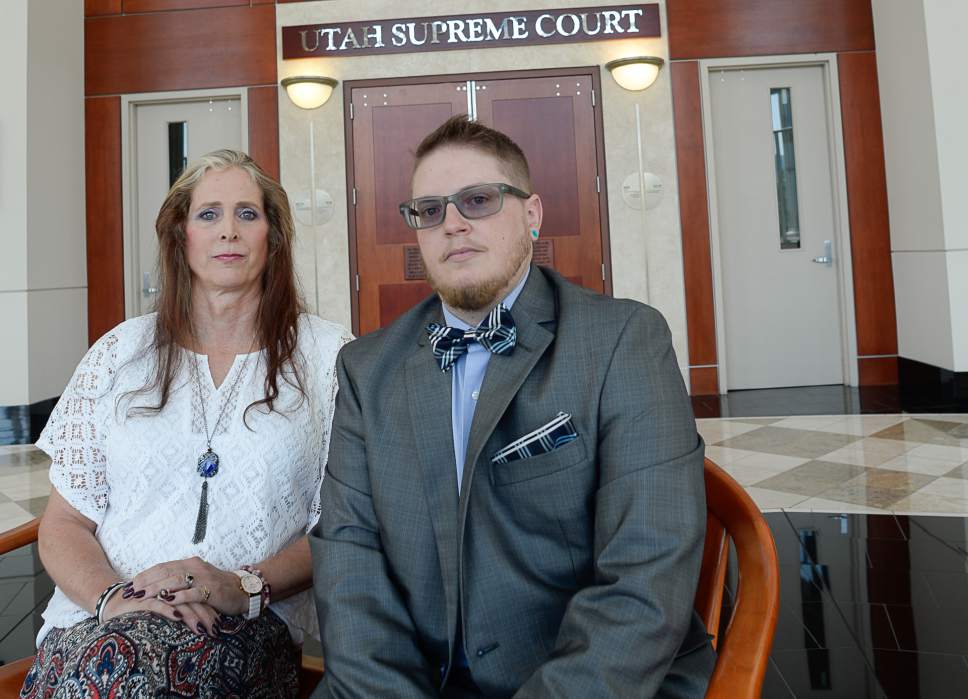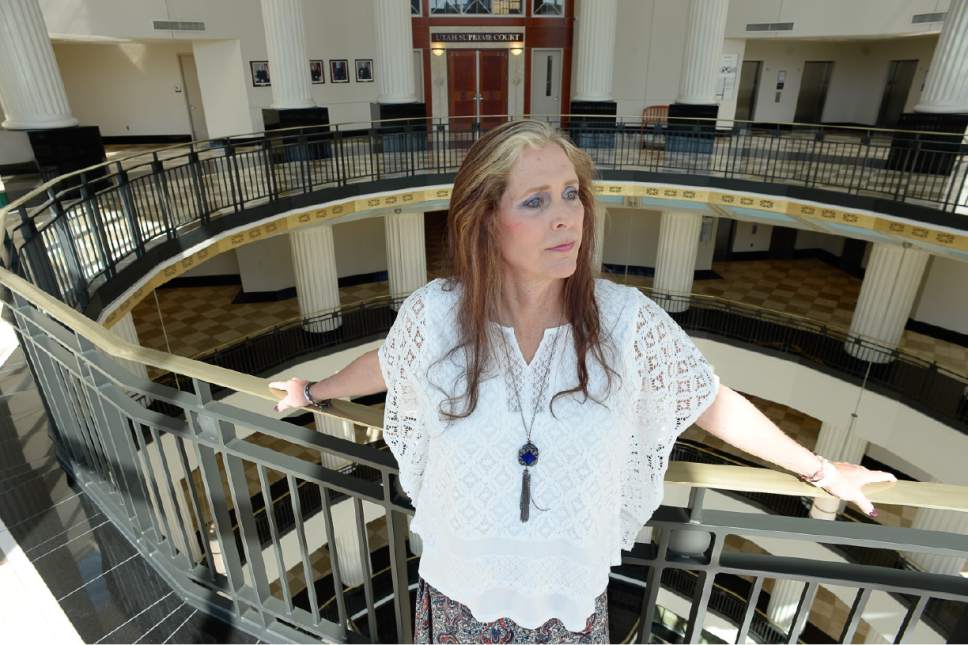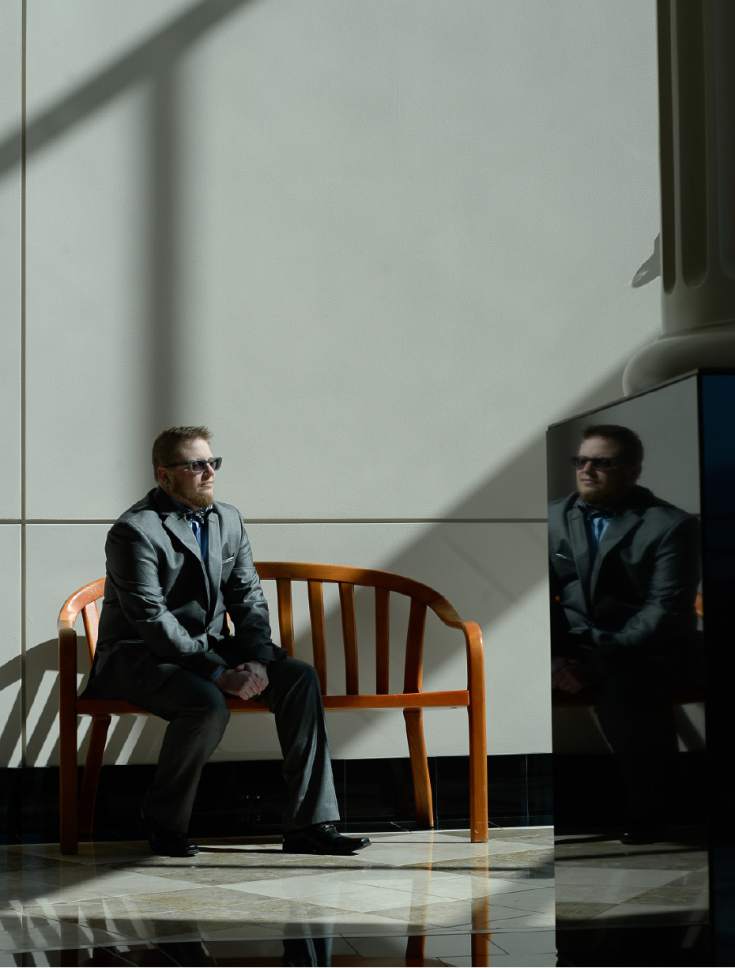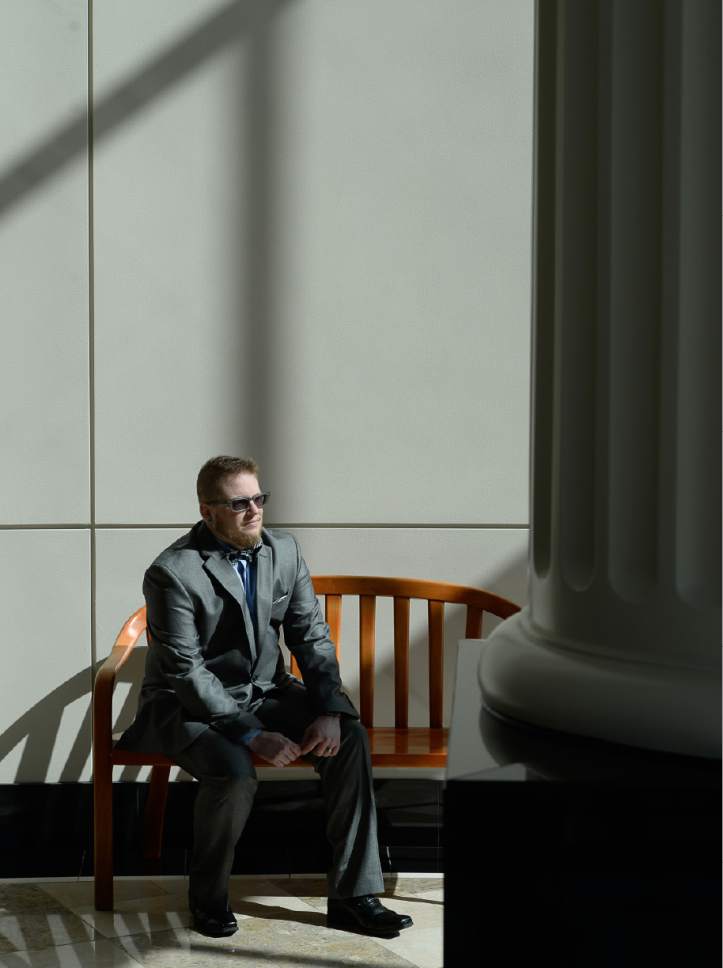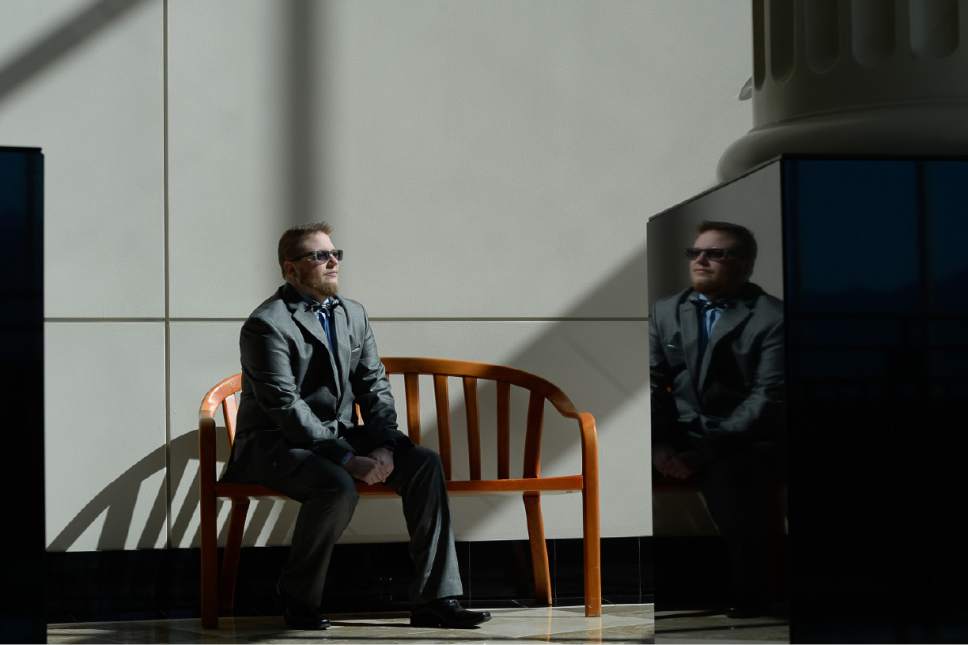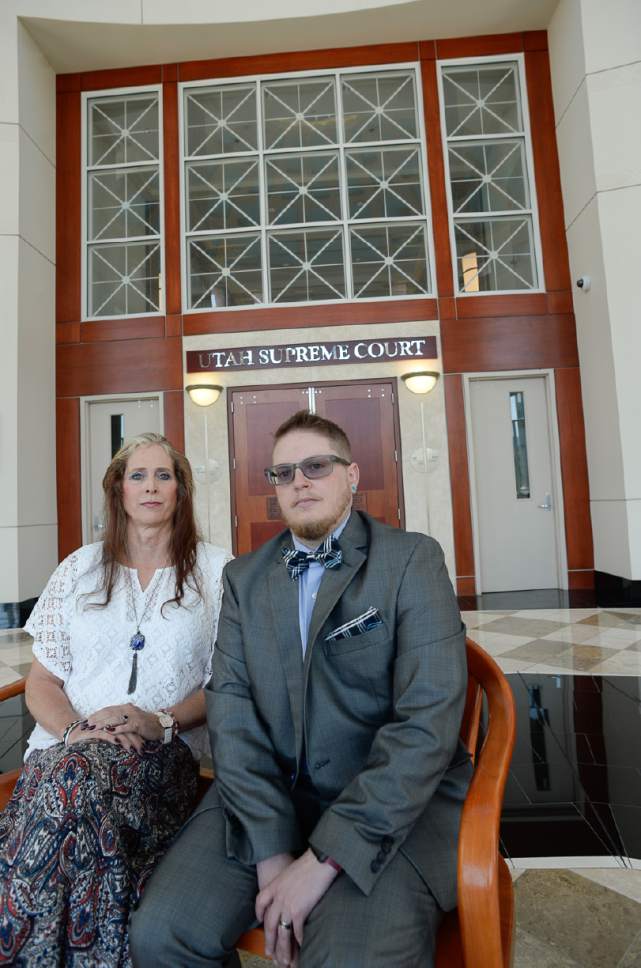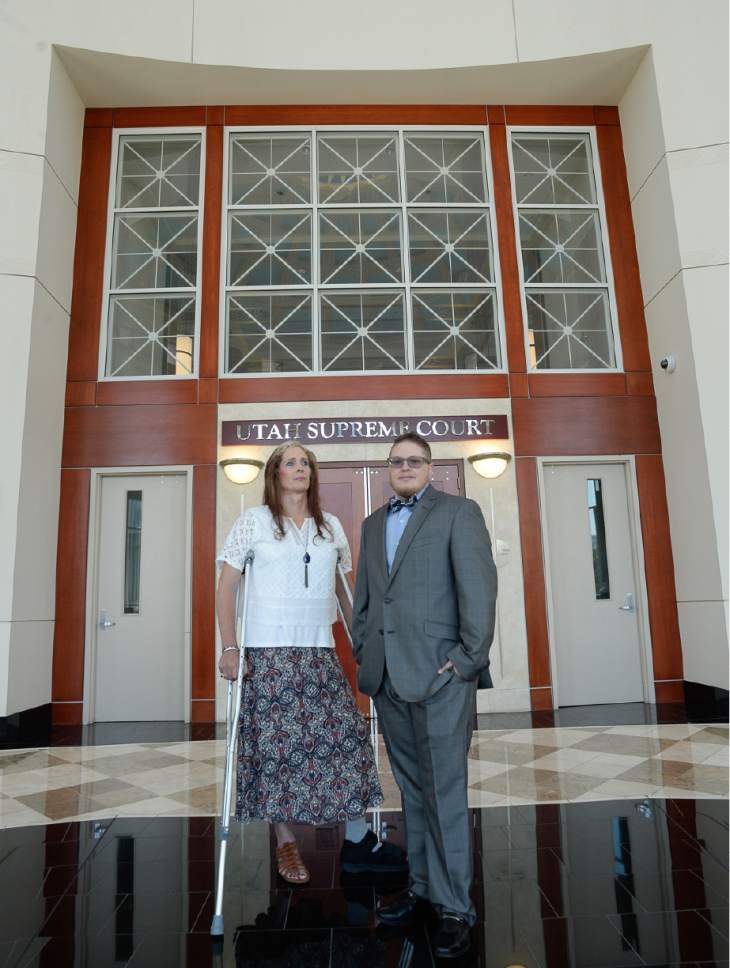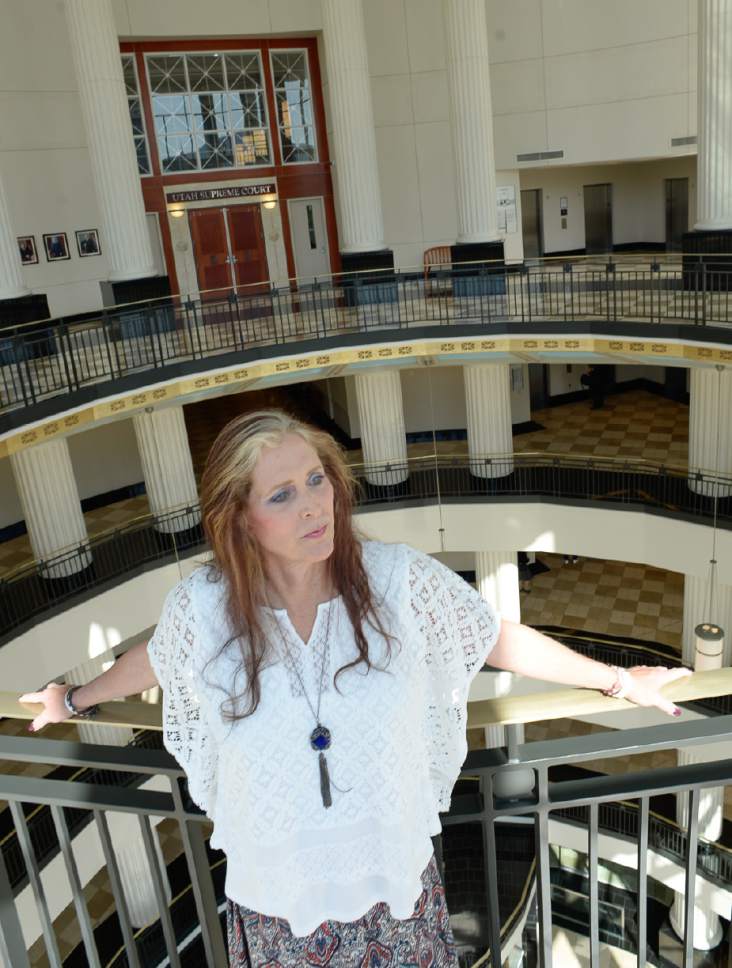This is an archived article that was published on sltrib.com in 2017, and information in the article may be outdated. It is provided only for personal research purposes and may not be reprinted.
The last time Angie Rice traveled through Denver's airport, her driver license was scrutinized and she had to endure a pat-down and search of her luggage that left her publicly embarrassed and feeling stripped of her dignity.
It's just the kind of experience Rice said she braces for every day. A transgender woman, her driver license — along with health-insurance cards and a military ID — all list her name as Angie, but her gender as male.
Sean Childers-Gray is similarly mismatched. His name and identity are male, but his documents are still marked with an "F" — for female.
Last year Rice and Childers-Gray sought to align those disparities by seeking legal name and sex designations through Utah courts.
But an Ogden judge gave them half what they wanted: Name changes were granted, but sex-designation changes, also known as gender-marker changes, were denied.
Rice and Childers-Gray are now challenging those decisions in an appeal before the Utah Supreme Court, asking justices to reverse the rulings from 2nd District Judge Noel Hyde and order their respective petitions granted.
"It's not just about getting my documents to correctly state who I am," Childers-Gray said. "It's about getting my state to recognize to the fullest capacity this person, this identity."
For most transgender people, asserting their identities is typically a battle hard-won and fought on multiple fronts — from coming to grips with the emotional and psychological impact of gender dysphoria to the social hurdles of altering one's gender presentation to the world and expensive and time-consuming medical procedures required for transition.
Legal alterations can also be a challenge. But, in Utah, judges statewide — including in the 2nd District — have not balked at granting petitions for name and sex designations, said Christopher Wharton, the attorney who represents Rice and Childers-Gray.
Hyde's rulings are believed to be the first to deny a Utahn a gender marker change, said Wharton, who has successfully represented clients in more than 30 other such cases.
Issued in December 2016, the Hyde rulings offered two reasons for the denials: First, the judge said he lacked authority to grant a sex-designation change because Utah law lacks clarity and outlines no set of standards or rules that help him decide the issue.
Second, he said he was reluctant to approve a change because of the significant differences in the impact of sex changes and name changes.
The latter, Hyde wrote in the Childers-Gray case, addresses only superficial characteristics and cannot affect the legal rights or responsibilities of the person seeking the change or anyone else.
"Such can never be the case with a sex change," Hyde wrote. "Regardless of the sincerity or intensity of the desire of any individual to display any particular physical appearance, some biological facts are not subject to voluntary modification."
It is true that Utah law doesn't include specific criteria for the change, but judges don't need them, Wharton argues in the appeal.
State law gives judges "common law" authority to "change a person's legal status to reflect the reality of a person's life" as long as those changes are not done for "wrongful or fraudulent purposes," court papers say.
That includes when a person marries or in other cases changes the name he or she uses in daily life and should apply equally to gender-marker changes, Wharton argues.
"This court should clarify that the test for changing one's sex designation is the same as the test for changing one's legal name, with the obvious difference that, at the hearing, the court would receive evidence that the person's gender identity is different from the one listed on the birth certificate."
Additional support for granting a petition can also be found other places in Utah's code, which directs the state registrar to issue an amended birth certificate after a court-approved sex change, and fair housing laws that define gender identity.
Hyde's rulings rejected those arguments.
The appeal further insists that Hyde's reluctance to act without more specific legislative direction is misguided.
"The interpretation of Utah's statute does not present a political question," Wharton wrote. "The issue presents only a question of statutory interpretation, an exercise well within the powers of the court."
Nationally, state laws to permit the issuance of birth certificates with corrected gender markers have been in place since the 1970s, said Shannon Minter, legal director of the San Francisco-based National Center on Lesbian Rights.
Only three states — Idaho, Ohio and Tennessee — lack legal mechanisms to allow transgender individuals to seek such changes, although a lawsuit is challenging Idaho's refusal to grant them as a violation of privacy, Minter said.
The standards vary for obtaining sex-designation changes. Historically, some state laws have required at least some surgery, while others, like Utah, say only that a court order is needed but don't spell out any requirements, Minter wrote in an email.
"The potential problem with such laws, as the Utah case illustrates, is that trial courts may impose different standards or, as in this case, refuse to issue a new certificate," he said.
Utah's 2015 nondiscrimination law, in fact, should provide judges with more statutory guidance about transgender people, he added, and the Rice/Childers-Gray case provides an opportunity for the state Supreme Court to "eliminate any inconsistency or confusion and provide statewide guidance to lower courts."
It's unclear how soon Utah's justices might decide the case.
The circumstances are unusual, Wharton said, because the appeal stems from a judicial ruling, so unlike a criminal case or a civil dispute, where two sides are at odds, there is no party to oppose it.
Utah's high court instead will hear the issues on direct review, court spokesman Geoffrey Fattah said.
A decision could be based solely on the brief Wharton filed, or the court could ask the lawyer to appear before justices for an oral argument to address any unanswered questions.


